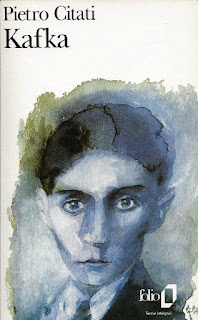What can poetry say?
Wislawa
Szymborska's "Vermeer"
A poem
against the apocalypse
Một bài thơ chống lại Tận Thế
Một bài thơ chống lại Tận Thế
Aug 27th
2010, 16:53 by More Intelligent Life, A.R. | NEW YORK
I HAPPENED
upon this poem on the New York Review of Books's website, and was
startled by
how beautifully Wislawa Szymborska captures the dance between motion
and
stillness in Vermeer's "The Milkmaid"—a moment frozen yet continually
happening.
Vermeer
So long as
that woman from the Rijksmuseum
in painted quiet and concentration
keeps pouring milk day after day
from the pitcher to the bowl
the World hasn’t earned
the world’s end.
in painted quiet and concentration
keeps pouring milk day after day
from the pitcher to the bowl
the World hasn’t earned
the world’s end.
I love the
shape of the poem—it thins like a stream of milk, pouring itself out. I
also
love the tension she sets up between the "W" and the "w",
which appears hierarchical but is also slippery.
"Vermeer",
Wislawa Szymborska, translated from the Polish by Clare Cavanagh and
Stanislaw
Baranczak
Note: Bài
thơ này, TV đã post, nay chỉ post thêm lời bình của tay Prospero.
Bản tiếng Việt, của TV, cũng phân biệt ra hai từ "W", và "w".
GNV cũng đọc nó trên tờ NYRB, như Prospero.
Bản tiếng Việt, của TV, cũng phân biệt ra hai từ "W", và "w".
GNV cũng đọc nó trên tờ NYRB, như Prospero.
Thế mới thú chứ!
Một
khi mà người đàn bà ở trong bức tranh ở viện bảo tàng Rijksmuseum
vẫn trầm lắng và chú tâm
rót sữa mỗi ngày từ cái bình ra cái bát,
thì Thế Giới vưỡn chưa có được cái sự tận cùng của thế giới.
vẫn trầm lắng và chú tâm
rót sữa mỗi ngày từ cái bình ra cái bát,
thì Thế Giới vưỡn chưa có được cái sự tận cùng của thế giới.
I love the
shape of the poem—it thins like a stream of milk, pouring itself out. I
also
love the tension she sets up between the "W" and the "w",
which appears hierarchical but is also slippery.
Tôi mê cái dáng của bài thơ - mỏng như sợi sữa, tự nó đổ nó ra, chẳng cần tới ai. Tôi cũng mê sức căng mà thi sĩ tạo ra, giữa W và w, nó làm lộ ra đẳng cấp nhưng cũng còn làm lộ ra sự trơn trượt.
Tôi mê cái dáng của bài thơ - mỏng như sợi sữa, tự nó đổ nó ra, chẳng cần tới ai. Tôi cũng mê sức căng mà thi sĩ tạo ra, giữa W và w, nó làm lộ ra đẳng cấp nhưng cũng còn làm lộ ra sự trơn trượt.
Ui chao, phán
như thế mới là phán chứ, nhỉ?
Nhưng bạn đã
nhận ra sức căng của thời tiết, vào lúc trời đất rơi vào thu phân?
… tóc em rối giữa hai đầu ngọn gió
hình như rừng rơi vào thu phân.
TMT
… tóc em rối giữa hai đầu ngọn gió
hình như rừng rơi vào thu phân.
TMT
Tiện thể đi thêm 1 đường Prospero, về Thơ Ca và Chủ
Nghĩa Vác Ngà Voi: Thơ có thể nói cái gì?
Books, arts
and culture
Prospero
Poetry and
humanitarianism
Sep 23rd
2011, 10:06 by E.H. | LONDO
Poetry and humanitarianism
What can poetry say?
An evening of worthy poetry reveals the limitations of the medium
Books, arts and culture
Prospero
Prospero
“Poetry and the State”, an event that took place on September 20th, was haunted by this problem: how to put into words events that leave you speechless. Organised by the poetry initiative “Poet in the City”, the magazine Modern Poetry in Translation and Amnesty International, the evening aimed to show the relevance of poetry in making “a public statement with a universal reach”. The five poets who gave readings were connected, in some way or another, to humanitarian causes. They included Timothy Allen, a former aid worker, Zuzanna Olszewska, a fellow from Oxford who conducts anthropological studies with female Afghan refugees, and Carlos Reyez Manzo, Amnesty's first poet in residence, who survived torture under Pinochet's regime in Chile.
This makes it a difficult event to criticise. But although there were moments of joy in the readings—for instance, the concluding lines in Mr Allen's translation of Ho Chi Minh's “Prison Diary” from the Vietnamese, “my poems are made of steel / and each is an act of resistance”—on the whole, the evening did not hold together. It felt as if the poets had been chosen more for the problems they wrote about rather than how well they wrote. The question of translation only seemed pertinent when Amarjit Chandan read from his poems both in Punjabi and English, creating a delightful interplay between the two languages.
Swamped by the various causes they were connected to, and only speaking for an average of 12 minutes each, the poets were unable to stand out as individuals. They were gathered together under an umbrella of worthiness, but there was no examination of the relationship between poetry and humanitarianism. We were meant to take it for granted that poetry is a force for good against subjects as diverse as Pinochet, Britain's cuts in arts funding (which David Constantine of Modern Poetry in Translation decried for making the country the “philistine place we're in”), and the state of the environment.
“Poetry and the State” seemed to hold a complacent view of poetry as an inherently ethical or comforting medium that brings people together. But in doing so, the evening undermined the power of any one poet to say much of anything.


Comments
Post a Comment